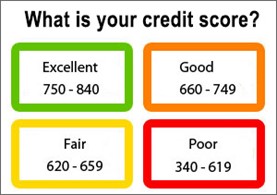National non-profit American Consumer Credit Counseling provides consumers with information on the ways in which credit can impact their financial future.
Boston, MA – March 18, 2016

“Consumers are often unaware of the direct impact their credit report and score can have on their financial well-being,” said Steve Trumble, President and CEO of American Consumer Credit Counseling, which is located in Newton, MA. “It can have a significant impact on a whole host of major life events, such as getting a job, buying a car, purchasing a home, or even renting an apartment.”
A credit report outlines a detailed account of a person’s financial history. A credit score is a number assigned to a person that represents the information in a credit report. Lenders, landlords, and others use these scores to understand a person’s level of risk when it comes to meeting their financial obligations, such as paying back loans. Both credit reports and credit scores can affect a person’s ability to get credit, as well as the terms and rates of that credit.
Each year consumers are entitled to one free credit report from each reporting agency, which includes Trans Union, Experian, and Equifax. The credit report will contain identifying information, such as a social security number and date of birth, trade lines, credit inquiries, and public records and collections.
The most common scoring system when calculating a credit score is called the FICO score. The credit score ranges anywhere from 300 to 850. Based on this scoring system, the higher the score the lower the risk and vice versa. If an individual has a lower FICO score, then they will have a higher interest rate, which would lead to higher monthly payments.
ACCC offers consumers the negative and positive impacts credit can have on their financial futures:
- Buying a car – Most auto dealers rely on a person’s credit score when it comes to approving loans. Consumers with high credit scores will receive the best auto loan rates available. A consumer with a low credit score can usually be approved for an auto loan, but will receive extremely high interest rates.
- Renting an apartment – Before being approved to rent an apartment, landlords or rental agencies will review a consumer’s credit report for negative information, such as missed payments. Those with bad credit may be required to get a co-signer on the lease.
- Opening a credit card – When applying for a credit card, it is customary for the company to review the consumer’s credit report and score to decide if he or she qualifies. Credit card companies can also review the scores of current customers and adjust their rates accordingly.
- Buying a house – Because a mortgage loan is usually quite large, lenders go through a detailed process and review all of a consumer’s credit reports and credit scores. Ordinarily, a consumer’s credit score should be anywhere above 700 in order to receive a standard mortgage interest rate.
- Receiving insurance – In order to determine terms and rates, many insurers, with permission, go through a consumer’s credit report and credit score. With the credit report and credit score, insurers calculate the consumer’s insurance risk. The higher a consumer’s insurance risk score, the better the insurance rates.
ACCC is a 501(c)3 organization that provides free credit counseling, bankruptcy counseling, and housing counseling to consumers nationwide in need of financial literacy education and money management. For more information, contact ACCC:
- For credit counseling, call 800-769-3571
- For bankruptcy counseling, call 866-826-6924
- For housing counseling, call 866-826-7180
- Or visit us online at ConsumerCredit.com
About American Consumer Credit Counseling
American Consumer Credit Counseling (ACCC) is a nonprofit credit counseling 501(c)(3) organization dedicated to empowering consumers to achieve financial management and debt relief through education, credit counseling, and debt management solutions. In order to help consumers reach their goal of debt relief, ACCC provsp;ides a range of free consumer personal finance resources on a variety of topics including budgeting, credit and debt management, student loans, youth and money, homeownership, identity theft, senior living and retirement. Consumers can use ACCC’s worksheets, videos, calculators, and blog articles to make the best possible decisions regarding their financial future. ACCC holds an A+ rating with the Better Business Bureau and is a member of the National Foundation for Credit Counseling® (NFCC®). For more information or to access free financial education resources, log on to ConsumerCredit.com or visit TalkingCentsBlog.com.

